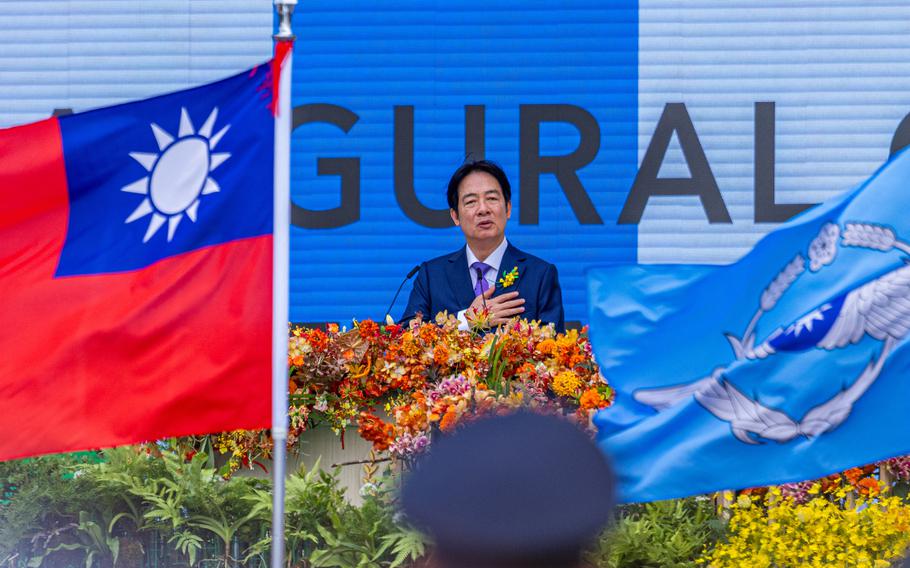
Taiwan’s new President Lai Ching-te gives a speech at his inauguration ceremony on May 20, 2024 in Taipei, Taiwan. Lai urged China to stop its military threats against Taiwan in his inaugural address. China slammed U.S. Secretary of State Antony Blinken for extending his congratulations to Lai. (Annabelle Chih, Getty Images/TNS)
(Tribune News Service) — China slammed U.S. Secretary of State Antony Blinken for extending his congratulations to Taiwan’s new president and separately sanctioned a former U.S. congressman who supported Taipei, underscoring how the island’s status divides the two superpowers.
“It’s a serious violation of the political commitment made by the U.S. to maintain only cultural, commercial and other unofficial relations with the Taiwan region,” Foreign Ministry spokesman Wang Wenbin said Tuesday in response to Blinken’s comments at a regular press briefing in Beijing.
The remarks by the U.S.’ top diplomat sent “a seriously wrong signal to the Taiwan separatist forces,” Wang said. He added that Beijing had filed a diplomatic complaint with Washington, and called on “the U.S. to immediately correct their mistakes.”
Blinken congratulated Lai Ching-te on Monday shortly after he took over as Taiwan’s new president. The Biden administration official also said in a statement that his nation looked forward to working with Lai and others in the democratically run island of 23 million people “to advance our shared interests and values.”

Rep. Mike Gallagher, R-Wis., addresses Secretary of Defense Lloyd Austin during a hearing on Capitol Hill in Washington, D.C., on Feb. 29, 2024. Gallagher, a Marine veteran, was on Tuesday, May 21, sanctioned by China, which accused him of interfering in China’s internal affairs and harming Chinese sovereignty. (Carlos Bongioanni/Stars and Stripes)
Also on Tuesday, Beijing announced sanctions on former U.S. Congressman Mike Gallagher, accusing him of interfering in China’s internal affairs and harming Chinese sovereignty, according to a statement on the Chinese Foreign Ministry’s account on WeChat.
The former chair of the House select committee on China’s Communist Party led a delegation to Taiwan in February, when he met then President Tsai Ing-wen. Gallagher called on Washington to arm the island “to the teeth” against Chinese military intimidation in an op-ed in January.
China opposes nations it has official ties with having contact with Taiwan, which it views as part of its territory to be brought under its control eventually, by force if necessary.
The U.S. is Taiwan’s main political and military supporter, irking Beijing. U.S. President Joe Biden has repeatedly pledged to defend Taiwan if China attacks.
Lai has signaled that during his four years in office he will follow many of the policies of his predecessor, Tsai, including embracing the U.S.
That stance means ties between Taipei and Beijing will likely remain tense in the coming years.
With assistance from Colum Murphy.
©2024 Bloomberg L.P.
Visit bloomberg.com.
Distributed by Tribune Content Agency, LLC.